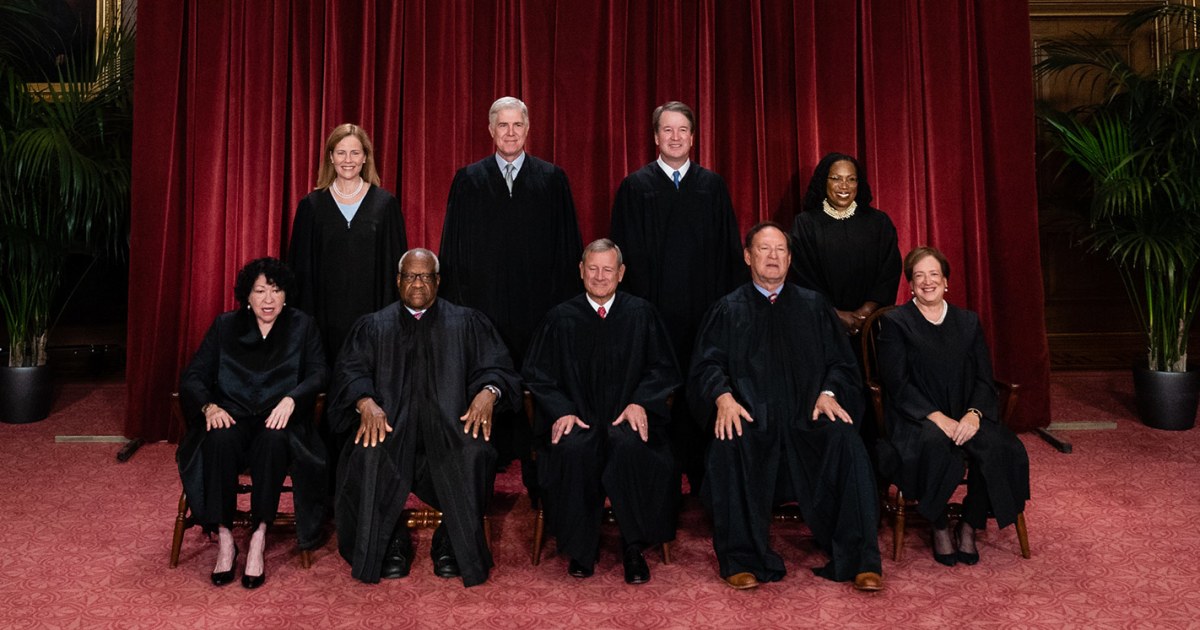The Supreme Court didn’t give Republicans everything they wanted this week when it only partially granted their bid to enforce an Arizona law requiring documentary proof of citizenship for voting. The court rejected the emergency appeal to enforce state law to a degree that could have more clearly disenfranchised voters in the battleground state in this year’s presidential election.
But even then, Republican-appointed Justices Clarence Thomas, Samuel Alito and Neil Gorsuch noted that they would have fully granted the request from the Republican National Committee and Arizona Republican officials.
So, what does this mixed ruling portend for the seemingly inevitable legal fights to come in what may be a close election in November?
It’s hard to know, exactly. That makes the high court a wild-card factor in the election, one in which Donald Trump’s possibly dimming prospects against an energized Democratic ticket could lead the GOP to lean on the courts even more heavily this year.
Taking a closer look at the court’s order in the Arizona case, called RNC v. Mi Familia Vota, shows how the justices splintered in the appeal and how they may continue to divide going forward. The court didn’t explain itself, which isn’t entirely unusual for emergency appeals on the court’s so-called shadow docket. But the lack of expressed reasoning raises questions about what’s happening at the court and what’s to come.
In addition to the order noting that Thomas, Alito and Gorsuch would have fully granted the GOP application, it further noted that Justices Sonia Sotomayor, Elena Kagan, Amy Coney Barrett and Ketanji Brown Jackson would have fully denied it. The votes of Chief Justice John Roberts and Justice Brett Kavanaugh aren’t listed on the order, putting them in the middle of the action. While it would have been good to know the reasoning underlying all the justices’ votes, it would have been especially worthwhile to see Roberts’ and Kavanaugh’s deciding rationale. Those two justices haven’t always sided with their fellow GOP appointees in voting cases, as shown by a surprise 5-4 ruling last year authored by Roberts and joined by Kavanaugh and the court’s three Democratic appointees.
An issue underlying this Arizona litigation and voting cases generally is the degree to which courts can alter rules close to elections — what’s known as the “Purcell principle,” which is supposed to discourage changes close to elections to avoid confusion, but the Roberts Court has applied it inconsistently over the years.
In the Arizona case, the two blocks of justices who noted their votes seemingly fall on different sides of the issue — though, again, neither block offered a written explanation. Perhaps more importantly, it’s unclear how Roberts or Kavanaugh arrived at their split decision, making it unclear how future voting appeals will be resolved as we head toward November, with three justices potentially prepared to go as far as Republicans want them to.
Subscribe to the Deadline: Legal Newsletter for updates and expert analysis on the top legal stories. The newsletter will return to its regular weekly schedule when the Supreme Court’s next term kicks off in October.


Leave a Reply